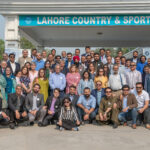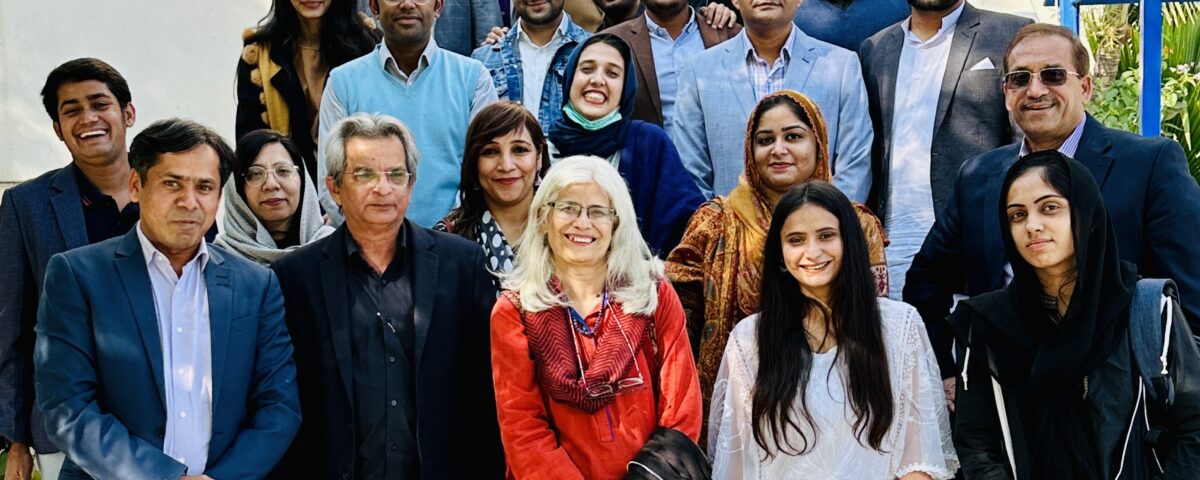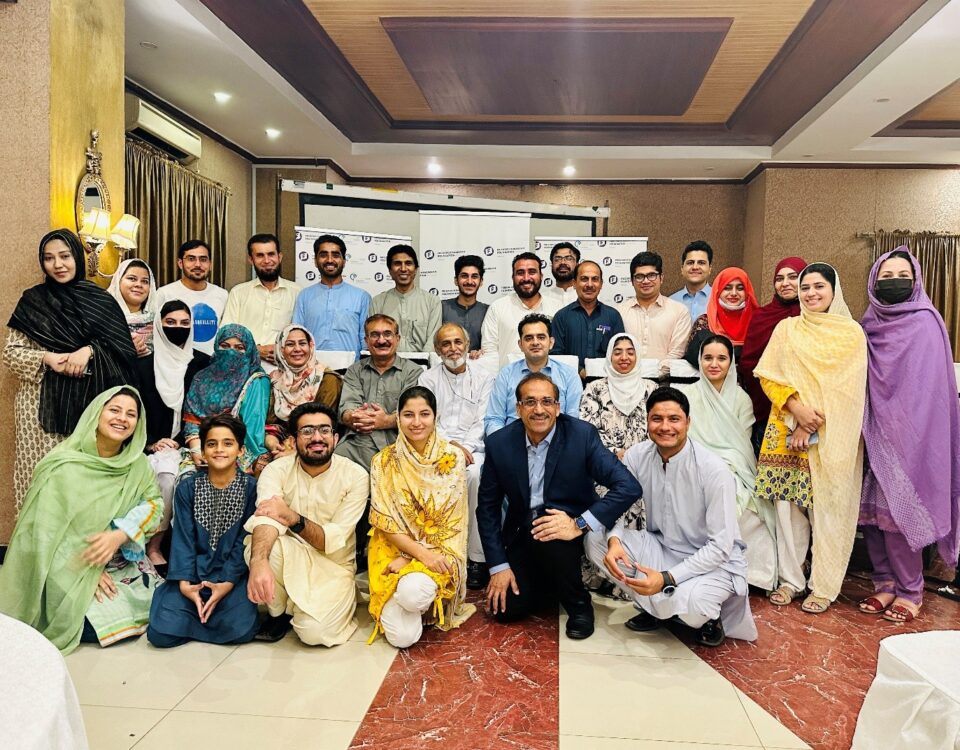Water Wisdom for a Thirsting Nation: Freedom Gate’s Transformative Workshops on Water Management in Pakistan
As Pakistan edges closer to becoming one of the most water-stressed countries in the world, the need for informed, inclusive, and interdisciplinary dialogue around water resource management has never been more urgent. In response to this growing challenge, Freedom Gate organized two high-impact workshops under the banner “Water Management: Opportunities and Challenges”, held in Lahore in August 2022 and Karachi in December 2022. These sessions were not only timely but foundational in shaping an informed citizenry and catalyzing multi-sectoral engagement on issues of water sustainability, climate change, and governance.
The workshops were led by Dr. S. Aamir Hameed, a Freedom Gate–International Academy for Leadership (IAF) alumnus and academic at Karachi University, along with the distinguished environmentalist and media development specialist Afia Salam. The Lahore session was formally inaugurated by Ms. Birgit Lamm, while the evening segment was moderated by Waqar Rizvi, featuring a reflective panel discussion with Afia Salam and acclaimed documentary filmmaker Wajahat Malik.
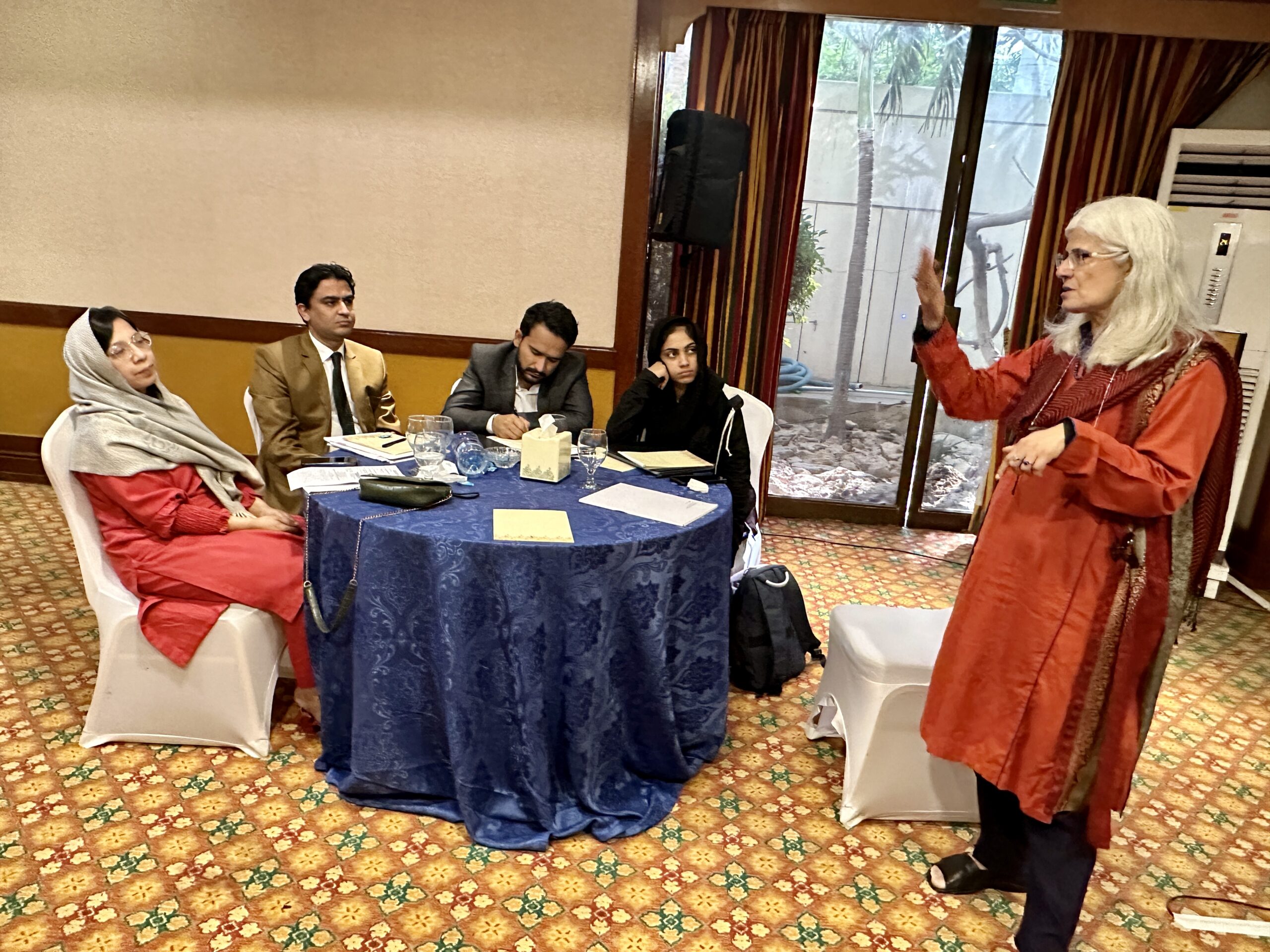
Building a Foundational Understanding: Hydrology, Climate, and Governance
At the heart of both workshops was the goal of strengthening participants' understanding of the hydrological cycle, contextualized within the escalating climate crisis. Dr. Aamir Hameed opened the workshops with compelling presentations that examined how climate change was altering water flow patterns, glacial melt rates, and seasonal variability in Pakistan. Through his deep academic insight, participants were able to grasp not just the science but the socioeconomic consequences of water mismanagement—ranging from agricultural instability to inter-provincial disputes.
Afia Salam’s sessions added vital texture by linking the technical aspects of water management to governance failures, public health, and development indicators, particularly the Sustainable Development Goals (SDGs). She argued that any effort to conserve water must go beyond engineering solutions and embrace civic engagement, gender sensitivity, and community accountability.
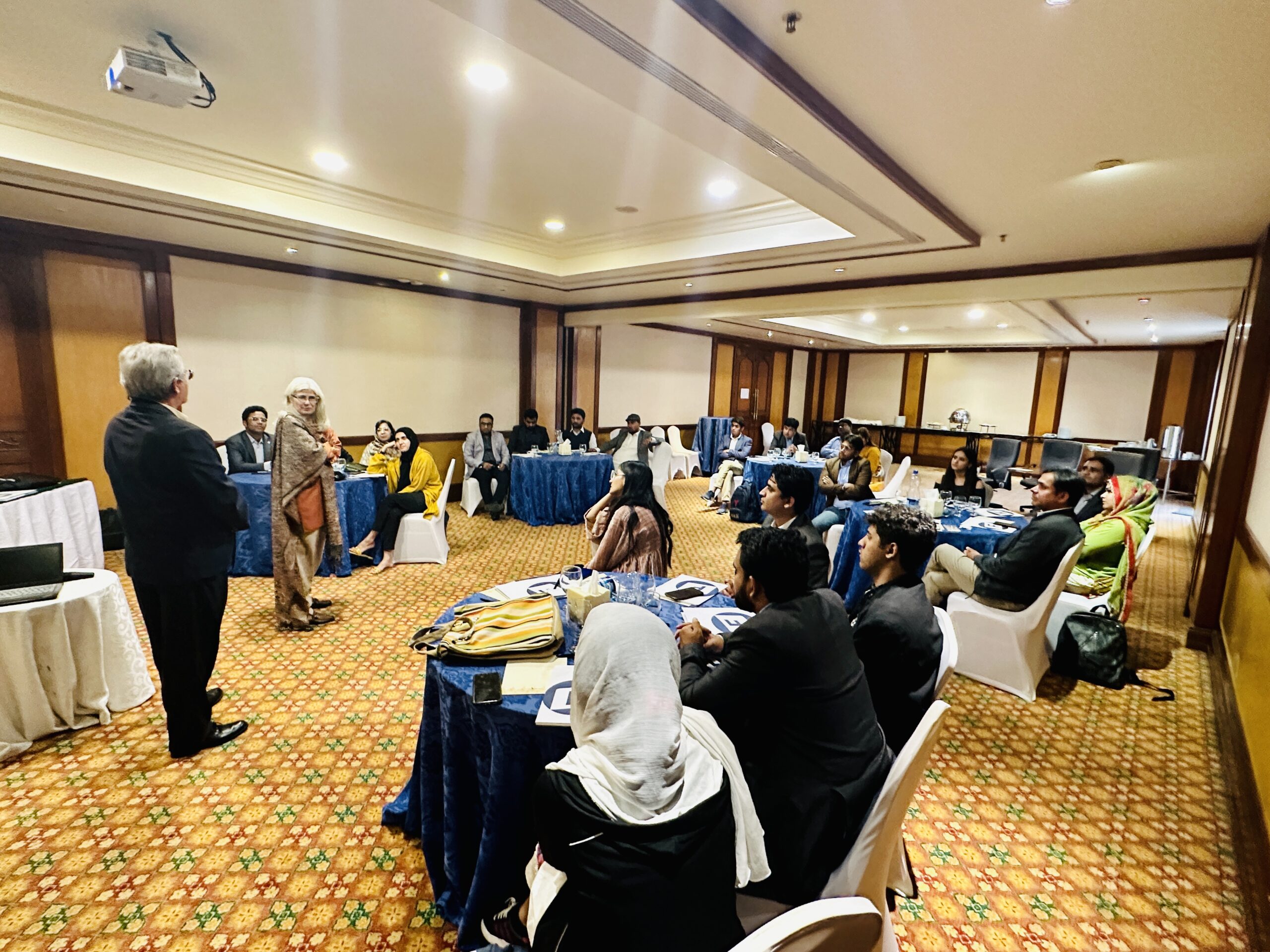
Deepening the Dialogue: From Footprints to Safety Plans
The workshops went beyond traditional lectures, emphasizing practical, participatory learning that empowered attendees to apply their knowledge in real-time:
Water Footprint Exercise: Participants calculated individual and community water usage, engaging in critical reflection about wasteful habits and regional disparities in access. This exercise laid bare the hidden cost of everyday water consumption and encouraged participants to identify local solutions.
Integrated Water Resource Management (IWRM): A core segment of the training, IWRM was examined through real-world case studies, such as the Sindh Water Sector Improvement Plan, offering attendees insight into how planning must be context-specific and inclusive of all stakeholders—particularly vulnerable populations.
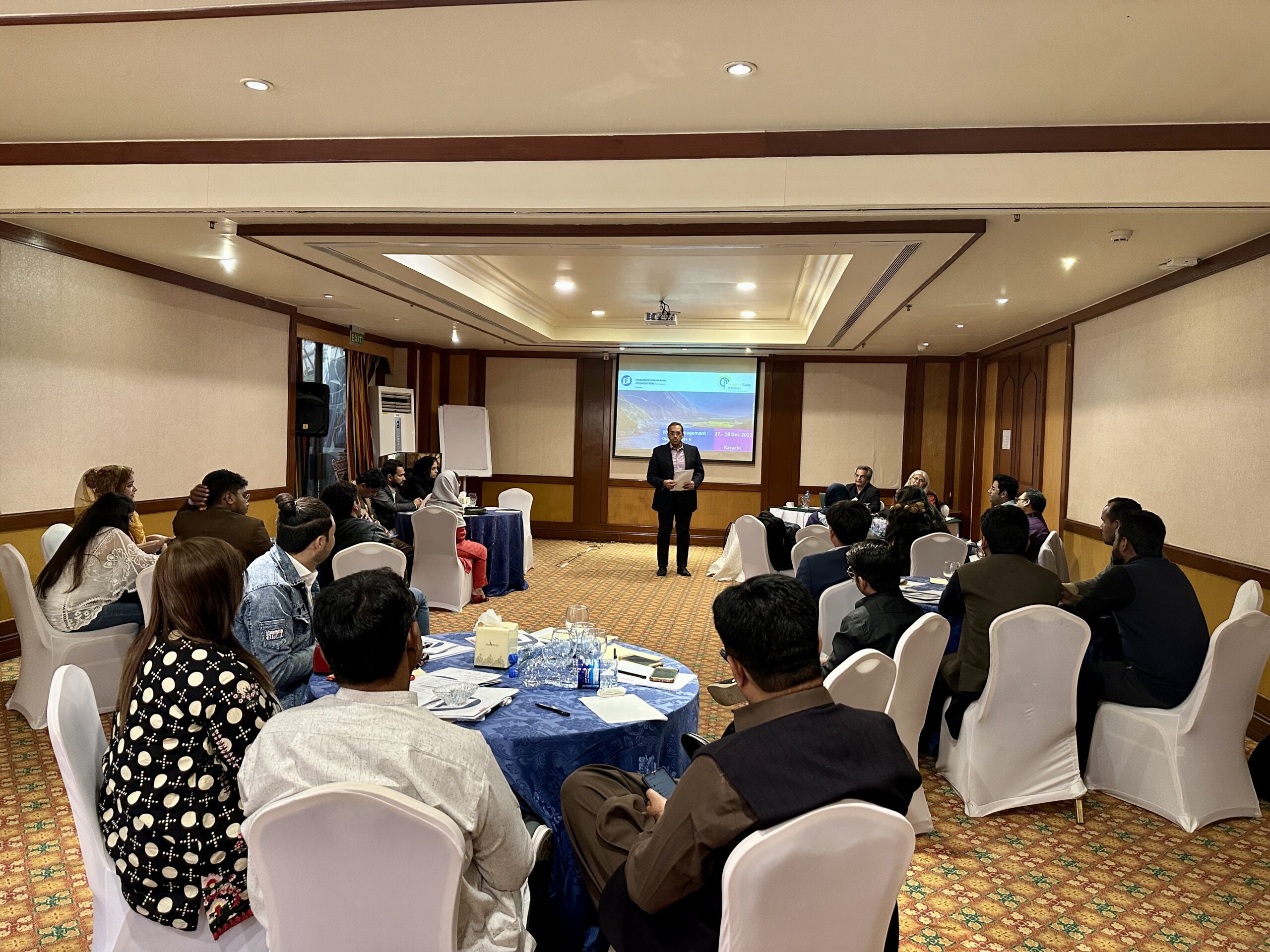
Water Safety Plan (WSP) Development: Participants worked in teams to design tailored water safety plans based on different geographic regions and risk profiles. The group work was followed by thoughtful presentations, demonstrating how diverse local knowledge can contribute to national planning strategies.
Clean Water and Sanitation (SDG 6): In alignment with global frameworks, this session emphasized the right to safe drinking water and sanitation as a fundamental human right, urging attendees to connect policy failures with real-life health consequences and social exclusion.
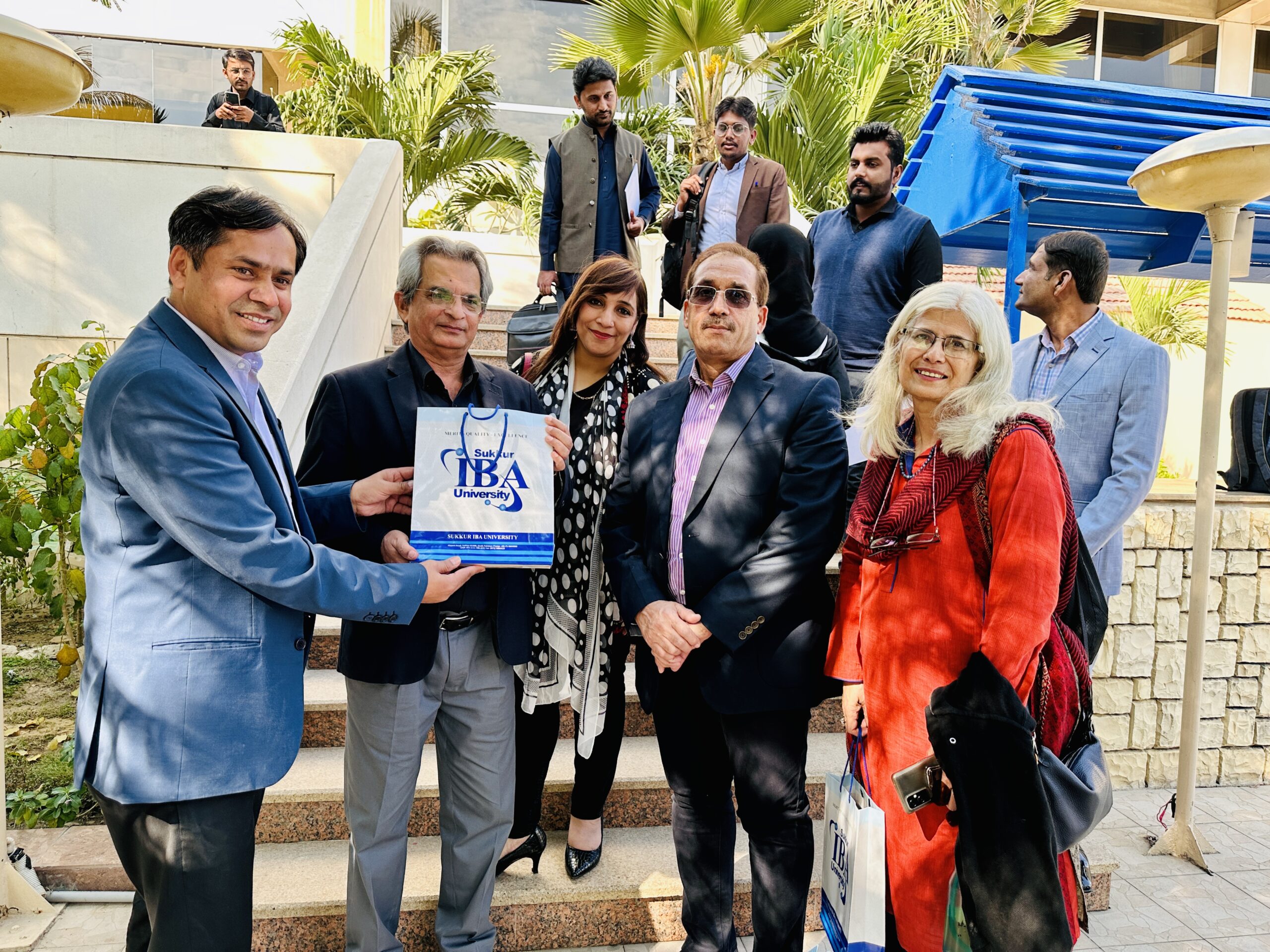
Evening Conversations: Storytelling, Policy, and the Media’s Role
In Lahore, the workshop concluded with an insightful evening session hosted by journalist Waqar Rizvi, featuring a reflective discussion with Afia Salam and Wajahat Malik, whose documentary work has captured Pakistan’s natural beauty and environmental threats alike. The conversation touched on water justice, the invisibility of marginalized voices in water debates, and the responsibility of journalists to frame water issues not merely as crises, but as calls to collective action.
This segment served as a powerful reminder that storytelling, public discourse, and advocacy are just as critical as infrastructure in addressing water scarcity. As the discussion unfolded, participants began to reimagine their own roles not just as consumers or critics—but as communicators and change-makers.
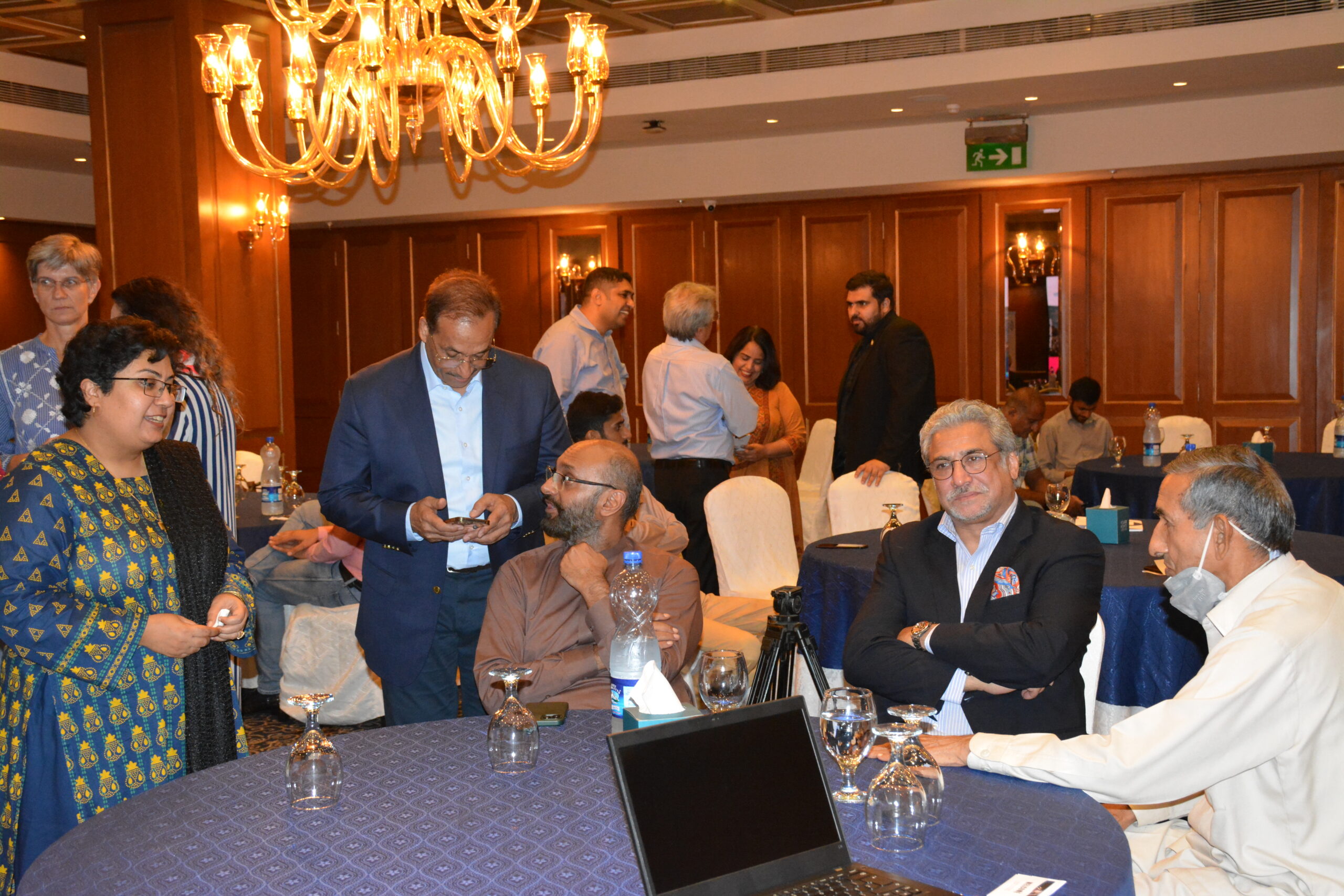
Key Takeaways: Insights from the Field
- Decentralized Decision-Making is Essential
Participants agreed that water governance in Pakistan must be rooted in local realities. Centralized approaches have failed to address on-ground challenges, making a compelling case for empowering local governments and community-based organizations. - Climate-Sensitive Planning is Non-Negotiable
With erratic weather patterns and shifting monsoons, the workshops emphasized the need for climate-informed water policies. Adaptive management, data transparency, and scenario planning were recommended as priorities. - Women and Marginalized Voices Must Lead
Water access and sanitation are deeply gendered issues. From Afia Salam’s inputs to group discussions, a recurring theme was the critical inclusion of women, transgender individuals, and rural populations in water-related decisions. - Ethical Journalism and Public Awareness Matter
A key outcome of the evening panel was recognition of the media’s responsibility in portraying the water crisis in a way that builds urgency without despair, and accountability without blame.
Achievements and Broader Impact
The workshops reached a broad spectrum of society—including academics, students, development professionals, civil society activists, and journalists—each of whom brought unique insights and returned with enriched understanding. Many participants expressed interest in replicating the water safety planning exercise in their communities or institutions.
By facilitating cross-disciplinary dialogue, Freedom Gate succeeded in fostering an environment of informed empathy and shared responsibility. Attendees departed not just with certificates, but with an enduring sense of agency to influence water policy, practice, and narratives in Pakistan.
Seeding a Culture of Water Responsibility
Freedom Gate’s workshops in Lahore and Karachi stand as more than academic exercises—they are acts of civic investment. As the country stands on the precipice of water insecurity, these initiatives illuminate a path forward rooted in knowledge, community, and cooperation.
The organization remains committed to building momentum around environmental justice, economic empowerment, and democratic resilience. As these workshops demonstrated, the challenges of water management are immense—but so too is the collective capacity to address them.


